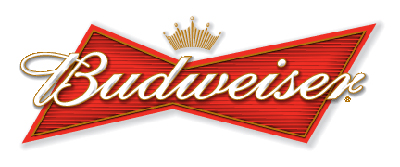Anheuser-Busch and the treehuggers
Organic ales, lagers and pilsners are increasingly squeezing their way into retail coolers alongside non-organic beers. With Wal-Mart’s decision to go big time into organic food and Anheuser-Busch’s launch of two organic beers in 2006, “organic” has become mainstream -- and big business.
Anheuser-Busch started test-marketing a lager under the Wild Hop label and an ale called Stone Mill Pale Ale in California more than a year ago. Given California’s propensity for all things natural and environmentally sound, Anheuser-Busch’s decision to try out its new products there made sense. Since September 2006 Stone Mill Pale Ale has been available nationally.
The two beers represent Big Beer’s first foray into the organic market, which is still small but growing. Anheuser-Busch would not be Anheuser-Busch if they did not try to suzz out this potentially lucrative market.
People who might buy Wild Hop and Stone Mill are more affluent, highly educated, more high-end shoppers who buy organic. Like most microbrews, the organic beers are priced a couple dollars more per six-pack than Bud Light: USD 7.99 for Wild Hop and USD 8.49 for Stone Mill.
However, a controversy has recently sprung up over what’s organic about organic hops. The label “organic” awarded by the U.S. Department of Agriculture (USDA) was to be amended to require the use of certified organic hops in beers labelled “USDA Certified Organic”. According to some U.S. beer activist, the USDA was lobbied by Anheuser-Busch and others to exempt hops from the required ingredients list for certified organic beers. In other words, Anheuser-Busch and some others think a beer should be allowed to be labelled USDA Certified Organic even if it is brewed with hops grown with pesticides.
Interestingly, while the USDA dithered over the amendment, the nation’s largest brewer announced in June that because of the USDA’s inaction on new regulations, it has started using 100 percent organic hops in its two beers that carry the “USDA Organic” seal. Previously, less than 10 percent of the beers’ hops were organic.
It is unclear how long Anheuser-Busch can continue to make Wild Hop Lager and Stone Mill Pale Ale with 100 percent organic hops. Doug Muhleman, Vice President of brewing operations, was quoted as saying that the company has “a limited amount of organic hops available.”
Food producers have been awaiting USDA approval of a list of 38 non-organic ingredients, including hops, that could be allowed in organic products. Permission to use the ingredients expired in June, leaving many organic food-makers uncertain on what to do.
The malt used for brewing the two beers is organic, says Anheuser-Busch.
Tastings, the Beverage Testing Institute in Chicago, describes the Wild Hop Lager as follows: “Rich amber color. Brown sugar, candied lemon, and citrus powder aromas have a detergent-like edge. Thin, watery apple sauce, lemon peel, and raisin toast flavors that finish with a quick, somewhat metallic mineral and grain flour fade.”
Could this be blamed on the organic hops, perchance?

